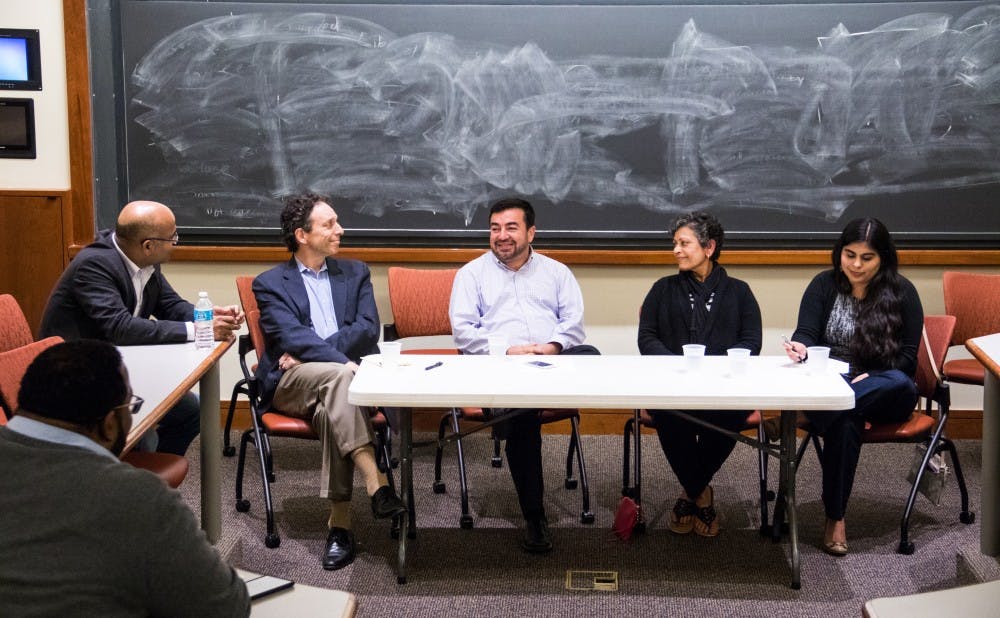The past year has been filled with a lot of talk about immigrants.
A Thursday panel at the Sanford School of Public Policy tried to unpack what it all means.
The event, hosted by the school's Committee on Diversity and Inclusion, was moderated by Jay Pearson and Deondra Rose, both assistant professors of public policy. At the forefront of the discussion was President Donald Trump’s immigration order, banning travel from several majority-Muslim countries.
“Listen, it’s not normal and it’s not anything that’s close to business as usual," said David Schanzer, associate professor of the practice in the Sanford School of Public Policy. "There’s nothing wrong with trying to have less illegal immigration…but you have to look at the totality of these actions—internal enforcement, the vilification of immigrants, the hateful rhetoric—stimulating the xenophobia of the population. You combine that with trying to restrict and end the refugee program, restrict immigration and ban immigration from certain Muslim countries…there is a large scale agenda to try to reverse, essentially, the ‘browning’ of America.”
Abdullah Antepli, the chief representative of Muslim affairs at Duke, said that he sees Trump’s executive order as a step toward more extreme policies.
“If you look, these kind of xenophobic policies are popping up all around the world right now," Antepli said. "First, it becomes normalized to ban six [countries]...Eventually, if it’s not okay for any Muslims to come, it’s not okay for them to stay here. We’re going in that direction. And therefore it’s not a Muslim issue. This type of character assassination and collective dehumanization, somehow lowering your civil liberties and exceptionalizing one community, opens doors beyond that.”
Other panelists said anti-immigrant rhetoric and policy can negatively impact nearby communities in North Carolina, particularly Durham and Morrisville, which has a large Indian population.
Madhu Sharma, Duke's Hindu chaplain, and Felicia Arriaga, a Ph.D. candidate in sociology, said they have felt fear among immigrant communities.
“At the Hindu temple, they had a huge gathering the other day with a lot of lawyers and state representatives and all that, asking questions like, ‘Right now it’s the Muslims, but maybe Hindus will be next!'” Sharma said. “It’s a fear across the community that it’s just the start.”
Sharma explained that when her son was in college, he started to grow a longer beard. Eventually, she said she asked him to shave it off because she was afraid for his safety.
One way of changing public policy toward immigrant communities is encouraging more to exercise their right to vote, the panel noted.
Although the strictness of the immigration policy will likely continue to increase, Arriaga said she thinks immigration will likely never be stopped entirely because the economy is dependent on immigrant labor. Such a reliance may lead to further carveouts in immigration laws for farmworkers, which could leave them working dangerously unregulated jobs.
Antepli noted that progress against xenophobia will require careful listening.
“It requires some hand-holding, really. I sometimes feel people in my camp—liberals, immigrants, progressives, lefties—we are too judgmental," Antepli said. "Too quickly we pull the race card, the ignorant card, redneck card. We have to be a little bit more patient with our fellow Americans in a more respectful way.”
Get The Chronicle straight to your inbox
Signup for our weekly newsletter. Cancel at any time.

